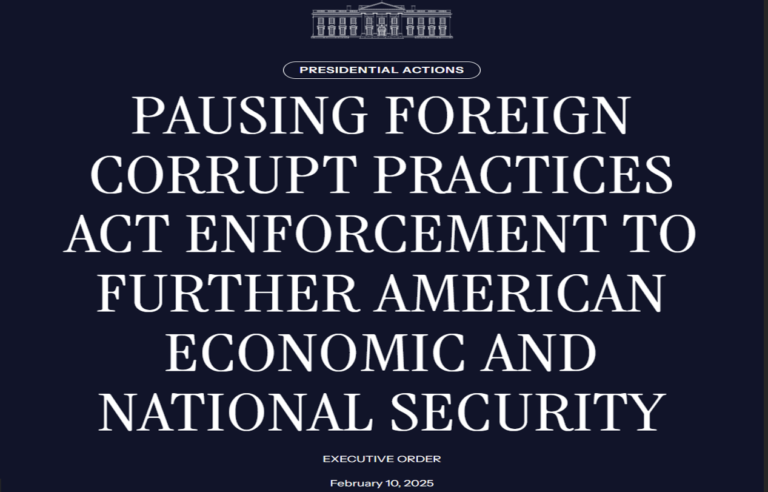Steering Your Ship into the New M&A Safe Harbor Policy!
Warning: you are steering into the treacherous waters of Bad Puns and Double Entendres. But don’t worry; we won’t leave you adrift (like a boat with no paddle). Let’s dive into this new policy position and its implications together, shall we?
Consistent with last month’s blog, the US DOJ keeps showing us its cards! They keep emphasizing voluntary disclosures and whistleblowing to promote transparency and demonstrate good faith. (It also makes their job a lot easier.)
During an SCCE conference late last year, Deputy Attorney General Lisa Monaco unveiled the Department of Justice’s (DOJ) new Mergers & Acquisitions Safe Harbor Policy (the Policy), aimed at encouraging voluntary self-disclosure of misconduct uncovered during the M&A process. In return, self-disclosing companies become entitled to the presumption of declination (which allows them to avoid prosecution).
To hop on this legal life raft, companies must:
-
- disclose the misconduct within six months of the acquisition closing, regardless of when the discovery of the misconduct occurred (pre- or post-acquisition);
-
- fully remediate the misconduct within one year of the acquisition closing;
-
- cooperate with any resulting DOJ investigations, and
-
- agree to restitution and/or disgorgement if necessary.
With this new Policy, the DOJ is now clearly attempting to both (a) incentivize voluntary self-disclosure (in the M&A context) and (b) provide clear timelines (which it has declined to clearly do in the past). Does this mean smooth sailing from here on out? We spot dark clouds on the horizon:
-
- Tight Timelines. The timelines for disclosure and remediation (within six months and one year of acquisition closing, respectively) certainly raise feasibility concerns. Challenges in pre- and post-acquisition due diligence may delay the discovery of misconduct, while effective investigation and subsequent remediation (e.g., integrating the acquired company into the acquirer’s compliance program) may also extend beyond the allotted one-year time frame. Summary: things often take longer than you’d like and you’ll probably want an extension.
-
- Extensions. The Policy allows for an extension subject to a “reasonableness analysis” by the DOJ. Unfortunately, determining what is “reasonable” remains subjective. The acquiring companies must persuade individual prosecutors of the need for the extension, giving way to potential disparities in the interpretation of “reasonable.” Further, these decisions are often non-public, so a company will find it hard to use past precedent to persuade in contemporaneous matters. Summary: relying on the “reasonable prosecutor” standard when requesting an extension seems unreliable.
-
- Disgorgement. The Policy mandates disgorgement of ill-gotten gain. Acquiring companies will thus have to investigate whether (and how!) any potential disgorgement should be factored into the purchase price of the target companies. More importantly from a prosecutorial standpoint, the greater the disgorgement risk, the less likely a voluntary disclosure. Summary: a voluntary disclosure decision becomes less likely with highly profitable bad acts… a strange way to incentivize.
-
- Limited Application. This Policy is not enforceable law. Further, because it only pertains to the DOJ, a disclosing company may be vulnerable to actions by (a) other regulatory and enforcement agencies (e.g., the Securities Exchange Commission), (b) other foreign governments, and/or (c) civil litigation (e.g., by shareholders). Summary: disclosure decisions are complicated (and you should probably reach out to us to help you weigh the options).
Does that mean companies should just weigh anchor and avoid the M&A Safe Harbor? Of course not, matey! Among the benefits:
-
- Acquiring and target companies have a clearly designated timeframe for completing pre- and post-acquisition due diligence.
-
- Acquiring companies have clear(ish) expectations from the DOJ as to how to qualify for a presumption of declination.
-
- Because the consequences of misconduct are clearer, red flags may provide acquiring companies with pre-acquisition leverage to price concessions or holdbacks.
While the Mergers & Acquisitions Safe Harbor Policy may present some challenges, there’s no need to walk the plank! Like a seasoned captain navigating the seven seas, we will keep steering you in the right direction. Call us today, and…happy sailing!







